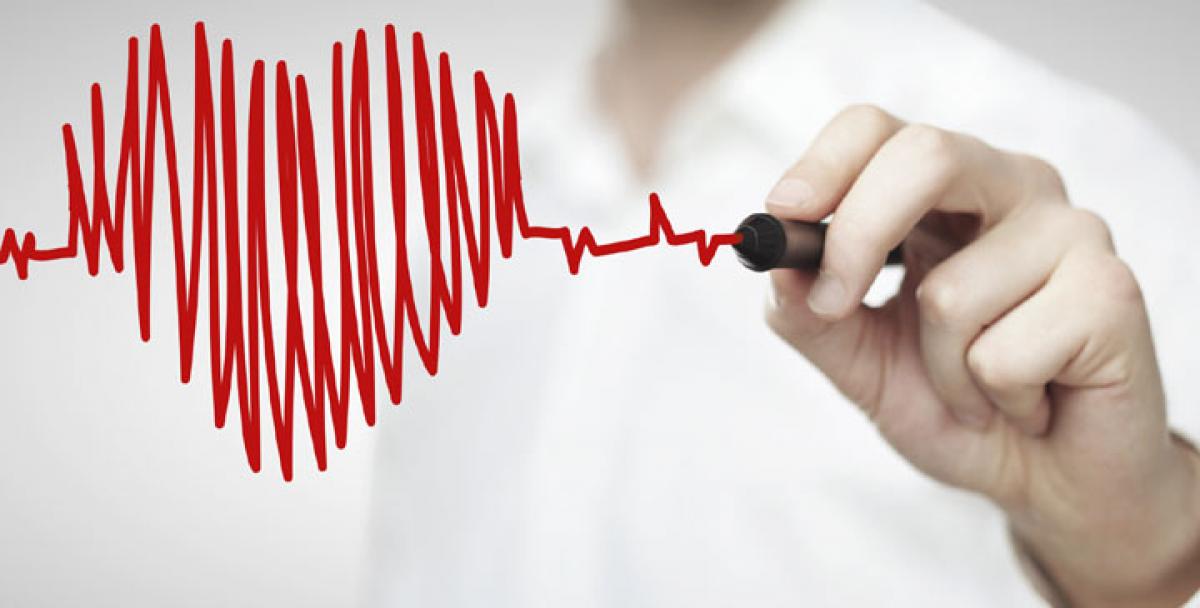Live
- Pilgrims throng Sabarimala temple on opening day of long festive season
- Jwala Thoranam held at Srisailam temple
- Birsa Munda Jayanti celebrated
- Another tigress released in soft enclosure in Similipal
- Coastal defence exercise on Nov 20-21
- Budget allocated for Perur reservoir rekindles farmers’ hope
- Majhi to embark on 4-day Singapore trip
- 22 Balaji MBA College students secure jobs
- Panel to resolve inter-State disputes
- Matric exam from Feb 21 to March 6
Just In

A higher resting heart rate may increase the risk of death, even in people without the usual risk factors for heart disease, a study reveals.
A higher resting heart rate may increase the risk of death, even in people without the usual risk factors for heart disease, a study reveals. A normal resting heart rate for adults ranges from 60 to 100 beats a minute. Generally, a lower heart rate at rest implies more efficient heart function and better cardiovascular fitness.
 "The association of resting heart rate with risk of all-cause and cardiovascular mortality is independent of traditional risk factors of cardiovascular disease, suggesting that resting heart rate is a predictor of mortality in the general population," said lead author Dongfeng Zhang from Qingdao University medical college, Shandong, China.
"The association of resting heart rate with risk of all-cause and cardiovascular mortality is independent of traditional risk factors of cardiovascular disease, suggesting that resting heart rate is a predictor of mortality in the general population," said lead author Dongfeng Zhang from Qingdao University medical college, Shandong, China.
The researchers found that people with a resting heart rate of more than 80 beats/minute had a 45 per cent higher risk of death from any cause than those with a resting heart rate of 60-80 beats/minute.
The team assessed 46 studies involving 1,246,203 patients and 78,349 deaths from all causes, and 848,320 patients and 25,800 deaths from heart disease. "Results from this meta-analysis suggest the risk of all-cause and cardiovascular mortality increased by nine percent for every 10 beats/minute increment of resting heart rate," Zhang said.
"The risk of all-cause mortality increased significantly with increasing resting heart rate, but a significantly increased risk of cardiovascular mortality was observed at 90 beats/minute," the researcher added. The findings were similar for people with cardiovascular risk factors. (The study was published in the Canadian Medical Association Journal)

© 2024 Hyderabad Media House Limited/The Hans India. All rights reserved. Powered by hocalwire.com







